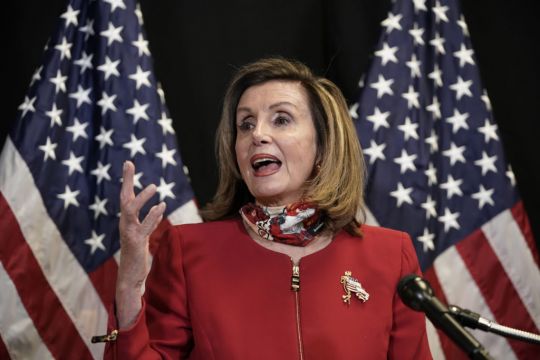The US election has scrambled seats in the House and the Senate but ultimately has left Congress much like it began, deeply split as voters resisted big changes despite the heated presidential race.
It is an outcome that dampens Democratic demands for a bold new agenda, emboldens Republicans, and almost ensures partisan gridlock regardless of who wins the presidency. Or perhaps, as some say, it provides a rare opening for modest across-the-aisle cooperation.
Speaker Nancy Pelosi was on track to keep control of the Democratic House, but saw her majority shrinking and her leadership called into question.
Control of the Senate tilted Republicans’ way as they fended off an onslaught of energised challengers, though a few races remained undecided on Wednesday.

Senate Majority Leader Mitch McConnell said on Wednesday he was confident “no matter who ends up running the government” they would be “trying to overcome all that and get results”.
One certainty is the upended projections will force a rethinking of polling, fundraising and the very messages the parties use to reach voters in the Trump era and beyond.
By evening, Ms Pelosi had all but declared Democrat Joe Biden the winner, saying House Democrats “will now have the opportunity to deliver extraordinary progress” on party priorities — lowering health care costs, providing jobs through new infrastructure, and other goals.
But the dismal outcome for congressional Democrats put in question the ambitious plans for legislative overhauls pushed by the party, eager for a sweep of Washington government.
Even if Democrats capture the White House and a narrowly split Senate, Ms Pelosi’s leverage to force deal-making on her terms will be diminished by her House losses.
If Donald Trump wins another term, his Republican allies – particularly in the Senate – will likely feel more comfortable sticking with him after escaping an electoral wipe-out, though they have yet to outline a GOP agenda.
Scott Jennings, a Republican strategist close to Mr McConnell, said win or lose Mr Trump “reorganised the political parties”, turning Republicans, not Democrats, into the party of “working-class” America.
“Democrats have a lot to think about when it comes to those voters,” Mr Jennings said. “And Republicans have a lot to think about enacting policies germane to those voters.”
Democrats countered that with Mr Biden on the brink of victory, the mandate for solutions to the coronavirus crisis, faltering economy and other big issues was as strong as ever.
“We’re going to get back to the business of governing,” said Zac Petkanas, a Democratic strategist. “Republicans are going to have a choice — whether they’re going to be helpful or stand in way.”
Most immediately, a Covid relief bill remains within reach, as the pandemic blazes through the states. Mr McConnell said he would also like to negotiate a big spending bill to keep the government running past a mid-December deadline.

House Republicans picked up five seats, so far, deflating Ms Pelosi’s plans to reach deep into Trump country by making rare gains with women and minority candidates.
Republicans defeated several Democratic freshmen who delivered the House majority in 2018 in a backlash against Mr Trump, by linking them to their most liberal members, including Representative Alexandria Ocasio-Cortez, and inaccurately branding them all as “socialist.”
“We expanded this party that reflects America, that looks like America,” said Republican House Minority Leader Kevin McCarthy in a conference call with reporters.







